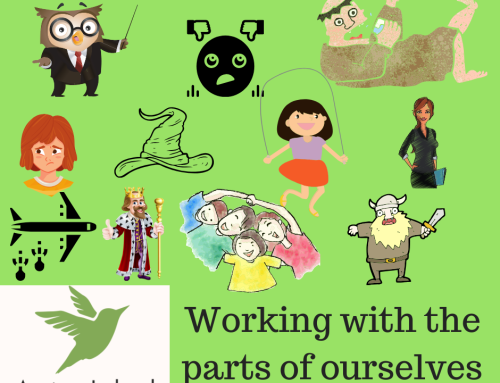15 thinking styles that lead to massive anxiety 1/15: Filtering
Introduction: As a practicing psychotherapist working with clients everyday it never ceases to amaze me how much our distorted thinking styles and our thoughts shape how we see the world and impact our emotional well-being. For many clients the key to understanding the symptoms of their anxiety is understanding how automatic thinking styles can impact us in unseen ways.
Most of our thinking is done automatically, which us why being told to “not worry about it” is so infuriating as if it were that easy there wouldn’t be a problem. However by becoming more aware of out thinking and the thinking styles that contribute to anxiety, we can mitigate these thoughts impact, doubt them more and even in time learn where we picked up these negative thinking habits.
In these blog posts we will explore the 15 common styles of distorted thinking that can cause massive anxiety. In this first post we turn our attention to ‘Filtering’, a cognitive distortion that can cast long shadows over our experiences and emotions.
Filtering Defined: Filtering is like looking through a narrow tunnel, focusing intently on a negative aspect of a situation, often to the exclusion of everything else. This mental tunnel vision can magnify and ‘awfulize’ our thoughts, leading to heightened anxiety, depression, and other mental health challenges. Having this negative tendency to see the world has glass half empty can also lead to chronic FOMO (Fear of Missing Out) or even lead to anxiety turning to depression.
Example in Daily Life: Imagine a skilled carpenter who, despite being praised for his excellent drawings, becomes fixated on a single request to expedite his work. This selective perception, a classic example of filtering, leads him to believe that his employer sees him as inefficient, ignoring all the positive feedback.
Examples in Daily Life:
- At Work: John, a diligent employee, received feedback on his presentation. While most comments were positive, one suggested improvement. John fixated on this single critique, forgetting the praise and feeling like a failure.
- In Relationships: Sarah had a lovely evening with friends, but one friend seemed a bit distant. Instead of remembering the laughter and connection, Sarah dwelt on that one friend’s behavior, worrying she had done something wrong.
- Personal Achievements: Mark completed a 5km run, a personal best. However, he focused solely on the fact that he didn’t reach his stretch goal of 6km, overlooking his significant achievement.
Individualized Filters: Each of us has a unique filter, shaped by our personal experiences and sensitivities. Some may be more attuned to potential dangers, while others might be hypersensitive to loss or criticism. Our memories too are selective, often recalling events that align with our current emotional states, whether it’s anxiety, anger, or sadness.
The Magnification Effect: Filtering doesn’t just narrow our focus; it also magnifies perceived problems, isolating negative elements from the positive context. Minor issues can seem ‘terrible’ or ‘disastrous’, intensifying fears and contributing to conditions like social anxiety, panic attacks, PTSD, OCD, and phobias.
Roots of Filtering: The origins of filtering can vary. A critical upbringing, an environment that fosters perfectionism, or a history of negative experiences can all contribute to this thinking style. It’s often intertwined with polarized thinking, where things are viewed in black-and-white terms.
Filtering Comeback Strategies:
- Shift Focus: Redirect attention from problems to coping strategies. Identify the primary mental theme (loss, injustice, etc.) and concentrate on life’s positives that counter these themes.
- Language Adjustment: Replace magnifying words like ‘terrible’ or ‘awful’ with affirmations like ‘No need to magnify’ and ‘I can cope.’ Embrace human resilience and our ability to endure and adapt.
- Challenge Awfulizing Moments: When you catch yourself awfulizing, balance the scale. How many positive moments are you overlooking? Accept that imperfection is part of life and striving for perfection only leads to distress.
Conclusion: Overcoming the distortion of filtering involves conscious shifts in our focus, language, and perspective. By recognizing and challenging this skewed thinking style, we pave the way for a more balanced, anxiety-resistant mindset. Join us as we continue exploring various thinking styles on our journey towards mental well-being.
Filtering is one of 15 common types of distorted thinking. In our next blog we will be discussing Polarized thinking.
Other Distorted Thinking styles are also extremely important for how we deal with and suffer from anxiety. Distorted thinking styles include: Filtering, Polarized Thinking, Over-generalization, Mind Reading, Catastraphizing, Personalization, Control Fallacies, The Fallacy of Fairness, Emotional Reasoning, The Fallacy of Change, Global Labeling, Blaming, Shoulds, Being Right and Heaven’s Rewards Fallacy.
To explore if some of what you have been experiencing could be anxiety take our quiz or look to speak with one of Our Therapists Team. This blog is written by our founder and therapist Michael Ledden.
Many thanks for reading and if this was useful please like, comment or share.
Michael
Team Anxiety Ireland
Anxiety is like a Merry-go-round, going nowhere, it’s time to step off.




